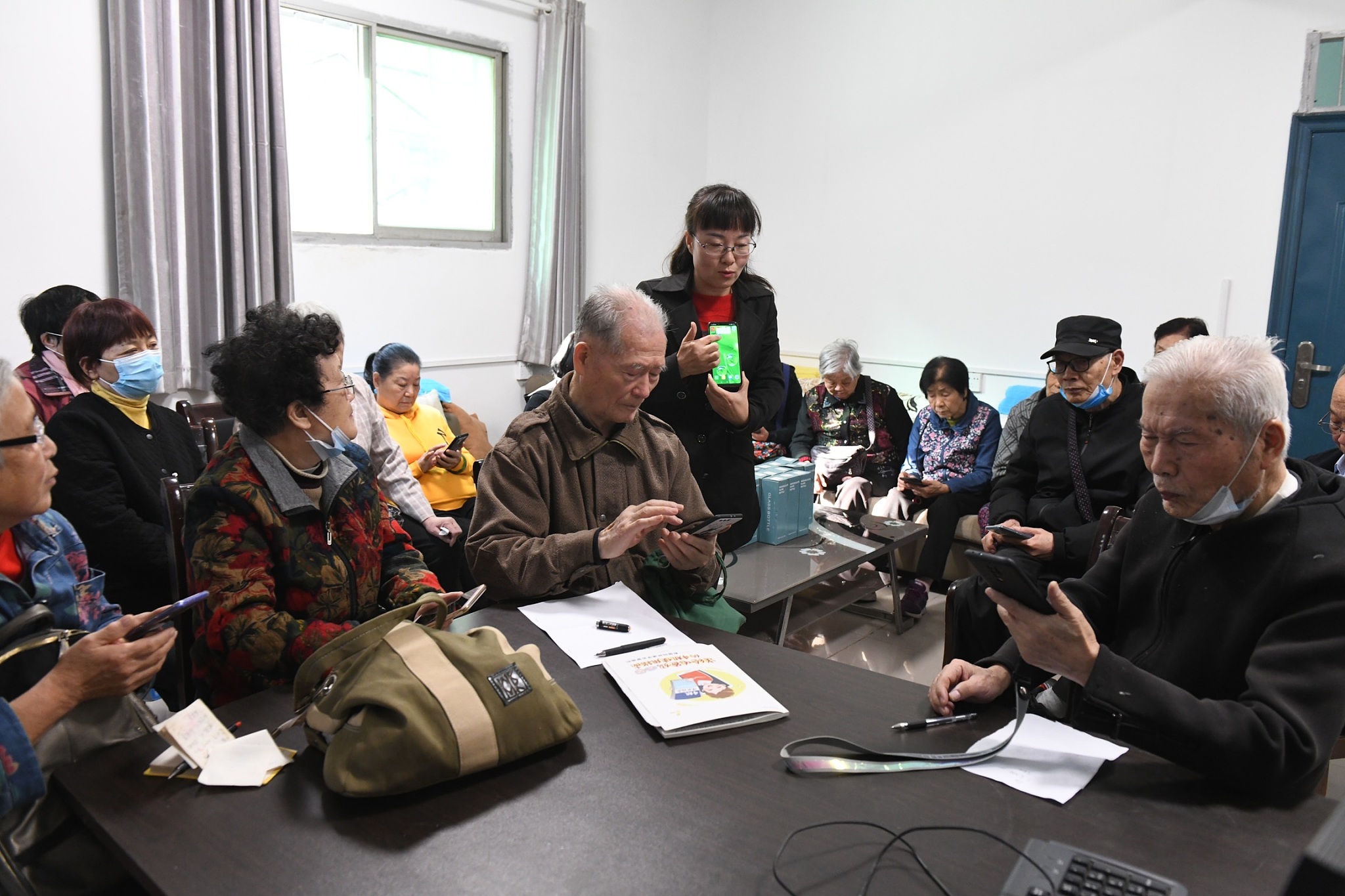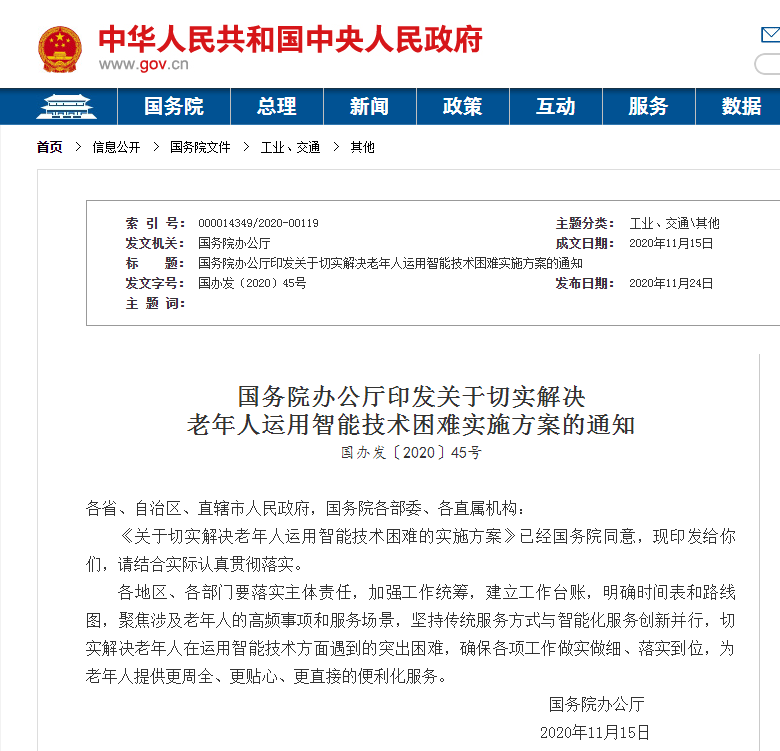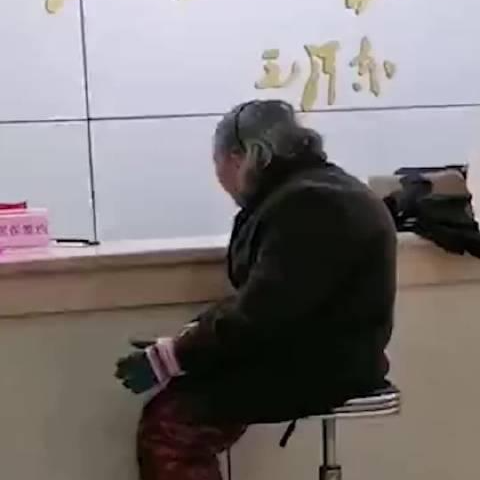
A younger women(C) is teaching a group of elders to use smartphone in a community in Xian City, Shaanxi Province, October 25, 2020. /CFP
A younger women(C) is teaching a group of elders to use smartphone in a community in Xian City, Shaanxi Province, October 25, 2020. /CFP
Like everywhere else around the world, China is going through a digital revolution – driven by the proliferation of all kinds of smart devices. From buying tickets, ordering food, booking a hotel, asking for home service, to tracking fitness levels, people can get almost everything done just through a smartphone.
Yet as society surges ahead, the elderly are being left behind. Many worry that digital services provided by companies and governments may end up elbowing out the elderly, leaving them without access.
To tackle the ever-widening digital divide, the General Office of the State Council on Tuesday issued a national plan to help the elderly adapt to the digital world.

Screenshot from the official website of the General Office of the State Council shows the plan to help the elderly adapt to life with smart technologies.
Screenshot from the official website of the General Office of the State Council shows the plan to help the elderly adapt to life with smart technologies.
The plan asked public organizations and all levels of governments to formulate specific measures to help the elderly as soon as possible. It outlined various types of services and scenarios most frequently used by the elderly and common problems, such as seeking medical treatment, submitting documents, applying certificates, attending recreational activities, traveling, shopping and so on.
The plan specifically emphasized optimizing health screening procedures that require scanning QR codes before entering subways, malls and other public spaces. During the pandemic, Chinese government launched an app to trace infections. But as many elders don't know how to use the smartphone or even own one, they often face trouble when they go out.
The national plan came after netizens complained on several occasions, voicing the need to ensure the elderly are not left behind.

The online video screenshot shows a senior woman sit by the counter bar, wondering how to pay the bill with a smartphone.
The online video screenshot shows a senior woman sit by the counter bar, wondering how to pay the bill with a smartphone.
Recently, an elderly woman was shown in an online video footage sitting by the counter bar, wondering how to pay the bill with a smartphone. It's reported that she went to pay her social insurance on a rainy day, but was told by officers they do not accept cash and she can either ask for help from her children or pay it through a smartphone.
Local officials helped the women solve her problem the day after, as tens of thousands of people criticized them for not having sympathy and urged the government to serve the elderly.
One day before the incident, another story had drawn ire from the public.
In a widely spread video online, a bank worker manhandled a 94-year-old woman to align her face to a facial recognition machine so she could activate her social security card. Many criticized the bank for using brute force on an elderly. Under public pressure, the bank quickly apologized to the woman and the society for setting a bad example.

